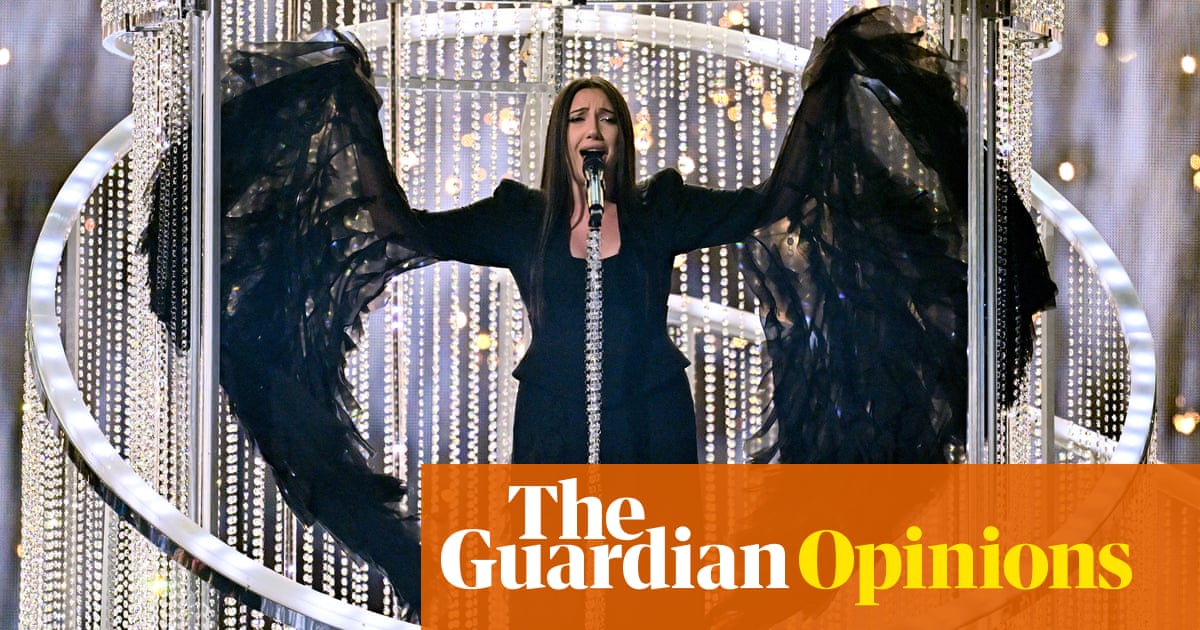As they get ready to watch this year’s final on Saturday, many Eurovision fans will be feeling conflicted. Some will not watch at all. The reason is the participation of Israel. Isn’t Eurovision supposed to be about “love, love, peace, peace” (as the 2016 contest’s Swedish hosts so memorably portrayed it)? If so, they may ask, what’s the besieger of Gaza doing there?
Some people argue that the people who runEurovision, members of the European Broadcasting Union (EBU), are simply spineless. Others point to the sponsorship of the event by Moroccanoil, which despite its name is Israeli. But a big international organisation is hardly dependent on a beauty products company.
The Eurovision vlogger Matthew Wrather has put forward a more subtleargument: it’s about the EBU’s fundamental purpose. The union was founded in 1950, and had both a technical and what we would now regard as a political remit. Technically, the project was about sharing ideas and enabling international broadcasts (the song contest was just one of these: the first was an awards festival in Montreux). Politically, the EBU supported state-run “public service broadcasting” with a fundamentally critical, liberal bias: broadcasters that were simply mouthpieces for their governments were excluded. Having fought nazism and now living in the shadow of Soviet Russia, western Europeans saw open debate as being at the heart of serious broadcasting.
Since then, however, this model has come under fire.In most parts ofEurope, the right routinely blasts public service broadcasters as liberal mouthpieces. Many on the left see them as bastions of conservative values, defending the status quo at best or as state propaganda at worst.With its mission now contested, the EBU has its back to the wall in ways it didn’t in 1950.
Nowhere is this more true than in Israel. In 2017, Benjamin Netanyahu abolished the old Israel Broadcasting Authority (IBA) – Eurovision in that year was its last broadcast. The reasons cited were financial, but commentators argue that it was a political move: the IBA was seen as too leftwing. It was replaced with Kan, the current broadcaster. Kan is more docile than the IBA – but still not docile enough for the government, which wants to ithanded to the private sector. The communications minister, Shlomo Karhi, previously put forward a proposal to this effect in 2023, accusing the network of biased coverage and claiming that it spoke in a“disgraceful manner”towards members of the government. Such a body would be breaking EBU rules and would not be allowed into Eurovision.
The EBU feels obliged to protect Kan, even if that means risking the Eurovision brand. That’s what it was created for: to champion “free and independent” public service broadcasting. Running the Eurovision song contest is only tangential to that mission.
There is no easy way out. After Vladimir Putin’s invasion of Ukraine the EBU made no move to ban Russia from Eurovision until participating nations changed from issuing statements and suggesting meaningful dialogue to saying they would quit –at which point action followed swiftly. The same has not happened over Israel’s involvement in the competition.
The EBU is in a way the victim of its own success in running Eurovision. The contest has grown from its original, essentially lighthearted roots into something that sends powerful political messages around the world. Its bosses had it easy for a long time, as these messages were uncontroversial in liberal circles. When the transgender Israeli singerDana International won in 1998, the EBU could genuinely pat itself on the back for being at the forefront of social change. The same withConchita Wurst’s magnificent victory in 2014. Eurovision was about good and wonderful things. “Love, love, peace, peace.”
Now, the organisation finds itself with a dilemma. The current Israeli government is not a practitioner of peace and its participation in the contest has been used by some to demonstrate support for the nation. In the long run, the EBU must either relinquish control of the song contest or change its mission so that protection (and development) of the Eurovision brand lies unambiguously at its heart. It must set clearer rules for eligibility, so that the contest really is about “love, love, peace, peace”. But this year, Eurovision will not be an easy watch for the thoughtful fan.
Chris West is the author of Eurovision: A History of Modern Europe Through the World’s Greatest Song Contest, published by Melville House UK
